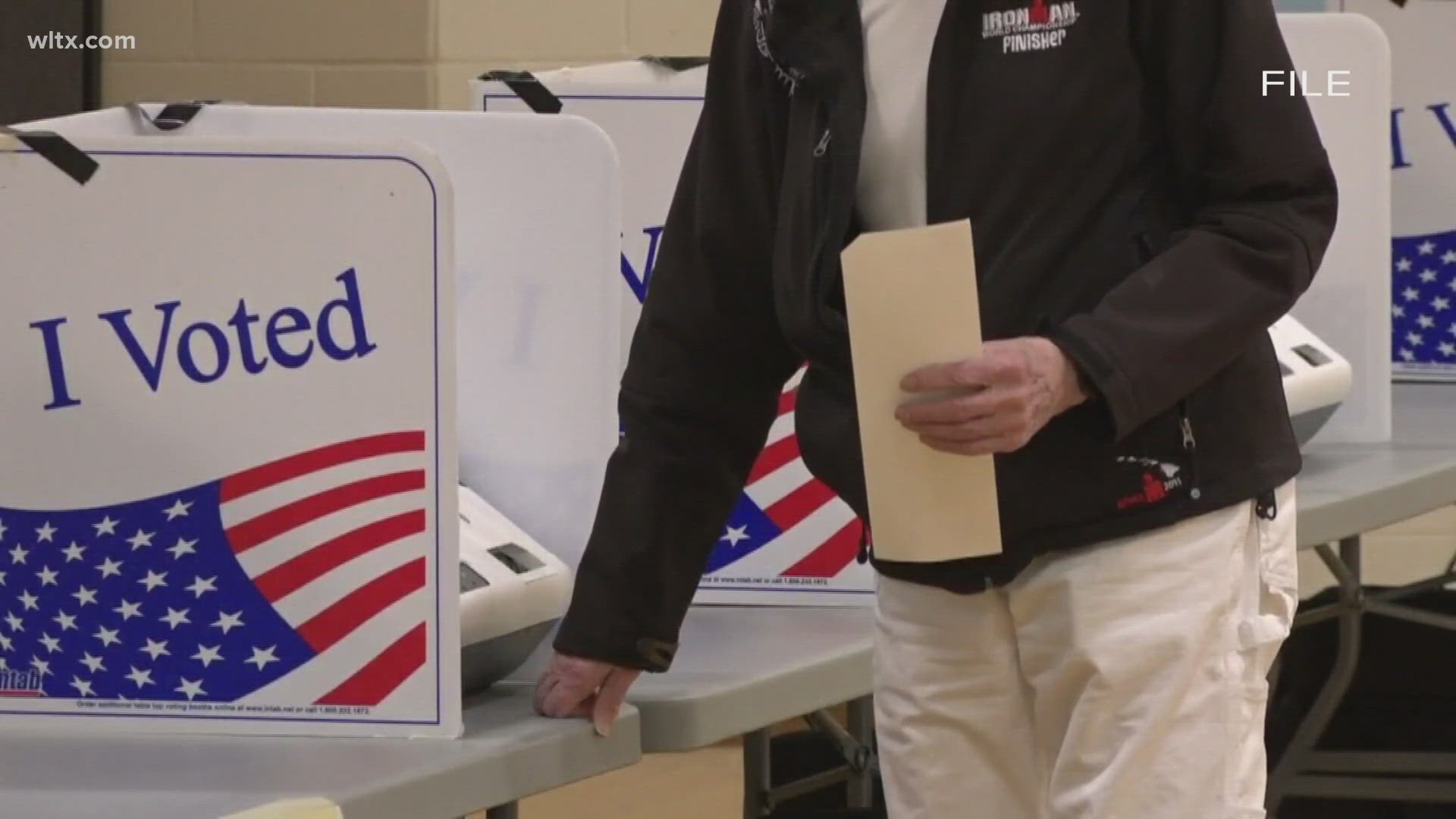COLUMBIA, S.C. — Columbia officials are discussing if they should change the voting system from a majority system, which requires candidates to get more than half of the vote to win an election. This would affect city positions like the mayor and city council members.
The majority system often forces a runoff in elections with more than two candidates. In a plurality system, the candidate with the most votes wins, so unless the top two candidates tie, there is no need for a runoff. Columbia is the only municipality in Richland County with a majority system.
Municipalities have months to plan for election day, but if a runoff is declared, officials have to try to do all that planning over again in around two weeks, said City Clerk Erika Hammond.
"The cost depends on the number of precincts that are open, the number of voters required to run those precincts, the number of ballots that need to be printed postage,” Hammond said. "There are a lot of my new details that go into the cost of an election that, in our overall budget, it's not expensive, but if you look at my departmental budget, where I have a much smaller number, it's an absorbent cost."
She said the cost isn't that much in the City's entire budget, but planning a runoff in that short time can be challenging.
"Making sure you have poll workers, making sure you have facilities, because the facility that was available, say, on November 5 of this year... that may not be available," Hammond said.
After a Tuesday presentation with the City's Administrative Policy Committee, Hammond said they decided to open the decision to a survey of Columbia residents.
Councilman Peter Brown said that, in a plurality system, you can’t ensure that a candidate has the majority’s support.
"I think the majority system actually makes your vote count more than anything," said Brown. "You're ensuring that the person you elect is at least wanted by 50% plus one. So, if you had three people in a race and the top voter got 37%, that means that two-thirds of the people don't want that person in office.”
City officials plan to send out surveys about the decision in the next year. The next municipal election is in November 2025.

